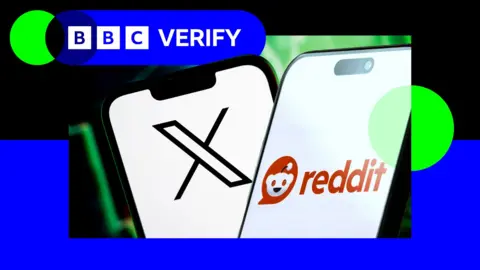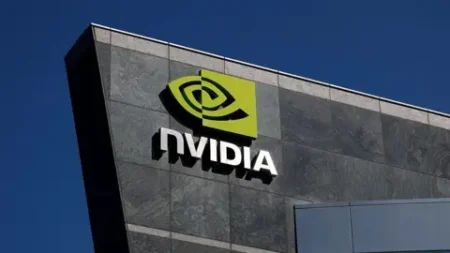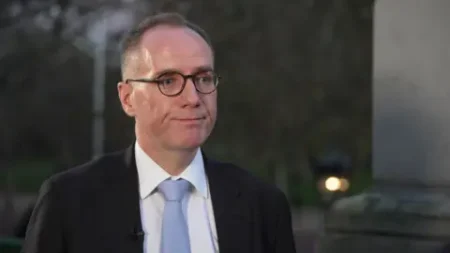In a significant move reflecting evolving online governance, social media giants are blocking a wide array of content, particularly relating to the ongoing conflicts in Ukraine and Gaza, in order to comply with the United Kingdom’s recently implemented Online Safety Act. This article from BBC Verify details these developments and the implications for public discourse on these platforms.
The Online Safety Act, which took effect last week, introduces stringent regulations aimed at safeguarding individuals under the age of 18 from exposure to harmful content, such as pornography and posts that promote self-harm. If companies fail to meet these requirements, they face hefty fines—up to £18 million or 10% of their global revenue. In extreme cases, the services of non-compliant entities could even be banned in the UK. As a direct consequence of this legislation, many social media platforms, particularly X (formerly known as Twitter) and Reddit, have begun limiting access to content that, while of public interest, has not undergone age verification checks.
BBC Verify’s investigative inquiry uncovered several types of public interest content that have been restricted, including parliamentary discussions on sensitive topics like grooming gangs. Experts caution that these moves by companies risk stifling legitimate debates and conversations on important societal issues. Sandra Wachter, a professor specializing in technology and regulation at the Oxford Internet Institute, expressed concern that the law was not intended to suppress uncomfortable but crucial truths that serve the public good.
The Online Safety Act classifies a variety of content as harmful, and effectively places the onus on companies to self-regulate in accordance with the law’s mandates. However, there have already been incidents where significant posts were blocked. For instance, a video showing a man in Gaza searching for his deceased family members amid the destruction was restricted even though it contained no graphic content. Users without age verification found themselves unable to view the video, greeted instead with a warning stating, “Due to local laws, we are temporarily restricting access to this content until X estimates your age.”
The impact resonated broader than just personal stories; clips related to military actions—such as the destruction of an Iranian-made Shahed drone utilized by Russian forces—were equally affected by the restrictions. In Reddit’s case, communities like R/UkraineConflict, consisting of 48,000 members and focused on war discussions, now face similar age-check barriers, thereby impinging on the global discourse surrounding contemporary conflicts. Notably, certain parliamentary speeches, including one delivered by Conservative MP Katie Lam about a graphic crime, remained accessible on Parliament’s official site but were restricted on social media platforms. This discrepancy raises questions about the commitment to ensuring that pivotal discussions are not lost among age verification hurdles.
The discourse around this legislation also extends to the leadership of the platforms involved. Elon Musk, owner of X, has vocally criticized the Online Safety Act, asserting that its intent is to suppress free expression. His comments underscore the growing concern over how regulation could inadvertently foster an environment where the flow of information is hampered, particularly concerning critical political and social topics.
The UK government’s Department of Science, Innovation and Technology (DSIT) highlighted that the ultimate discretion in navigating the law lies with social media companies, advising that the focus should not shift to censoring essential public debates. Nonetheless, the dominance of compliance can lead to over-blocking, which may inadvertently silence voices and stymie discussions that are crucial to public awareness.
As of now, it’s unclear how many accounts are being affected by these new restrictions, with X and Reddit remaining silent on specific inquiries related to content moderation practices. Regardless, this legislation inadvertently places adults accessing these platforms in a precarious position, as many do not log in or undergo age verification, resulting in them facing the same limitations as minors.
In essence, while the Online Safety Act aims to create safer online spaces, its repercussions may severely diminish the quality and accessibility of public discourse on social media, leaving both experts and everyday users grappling with the tension between safety and freedom of expression in the digital age.











